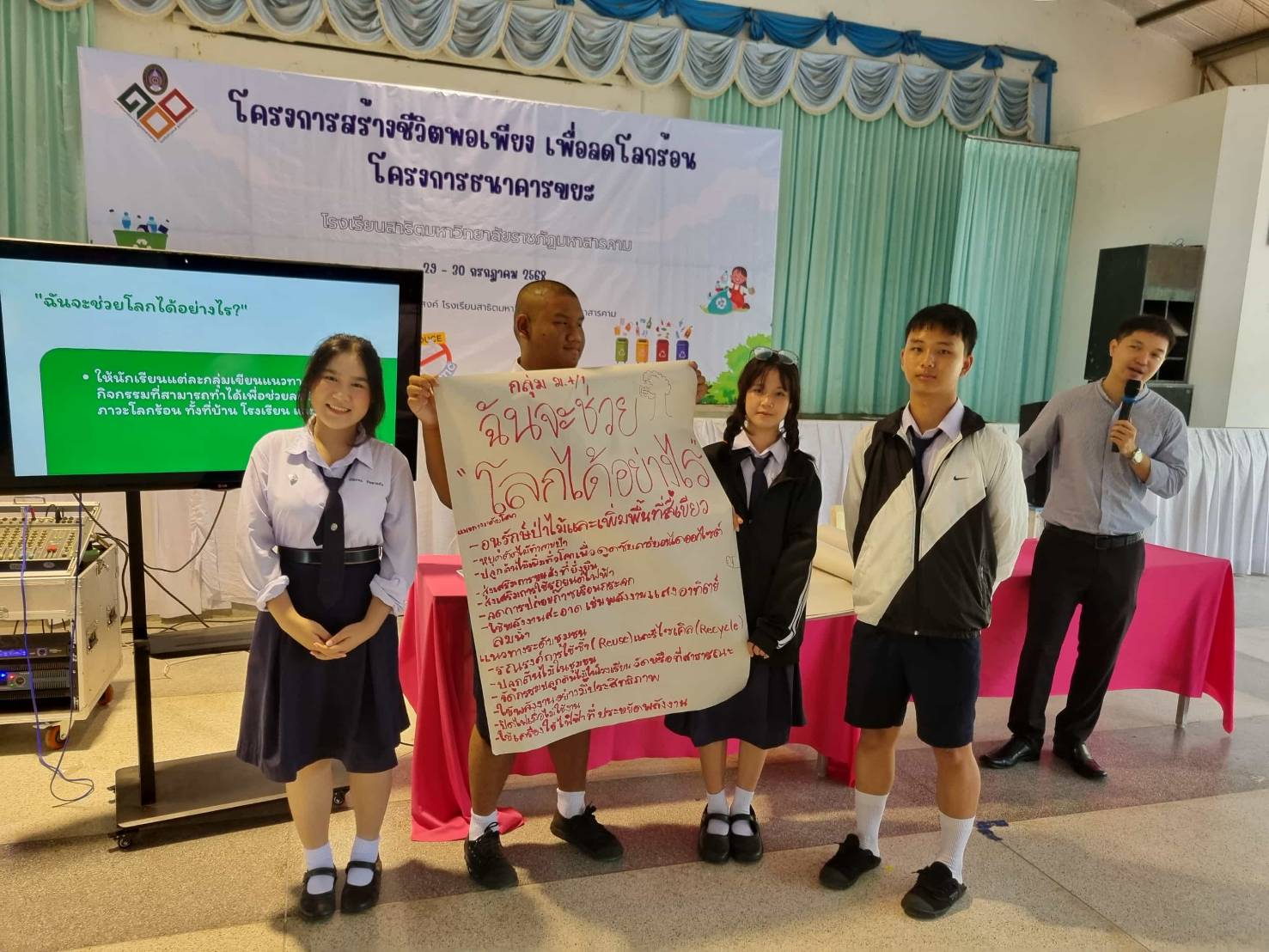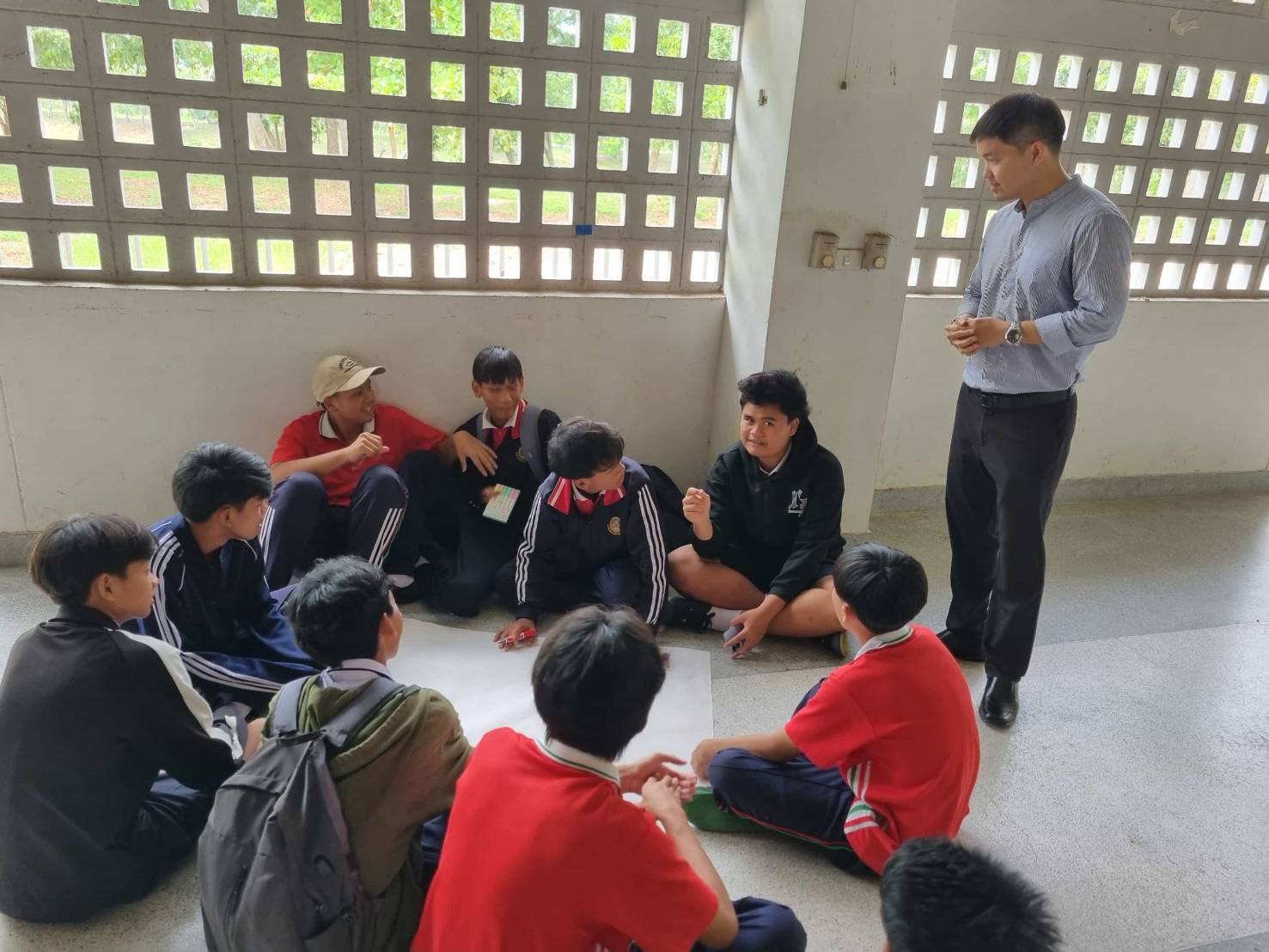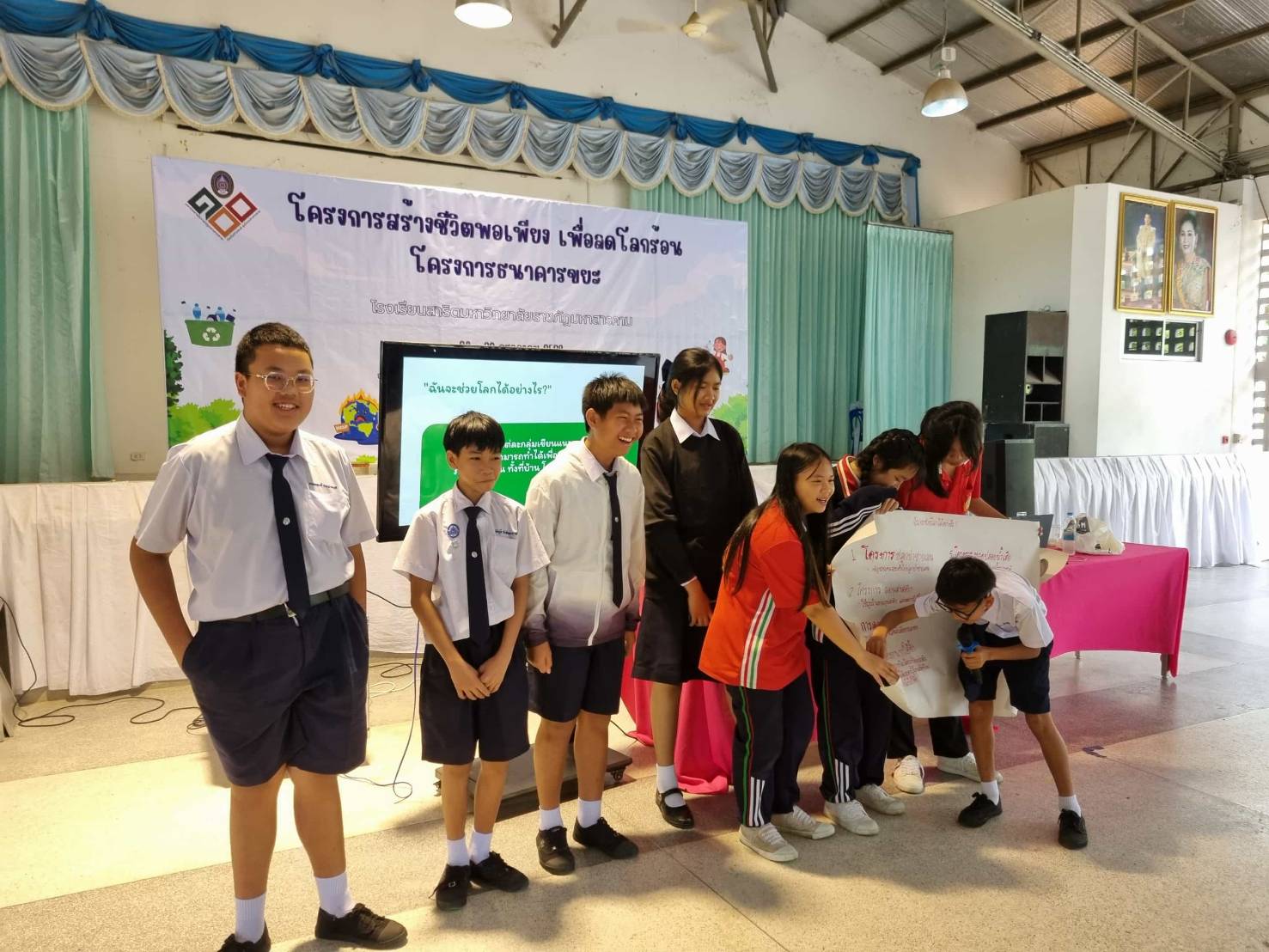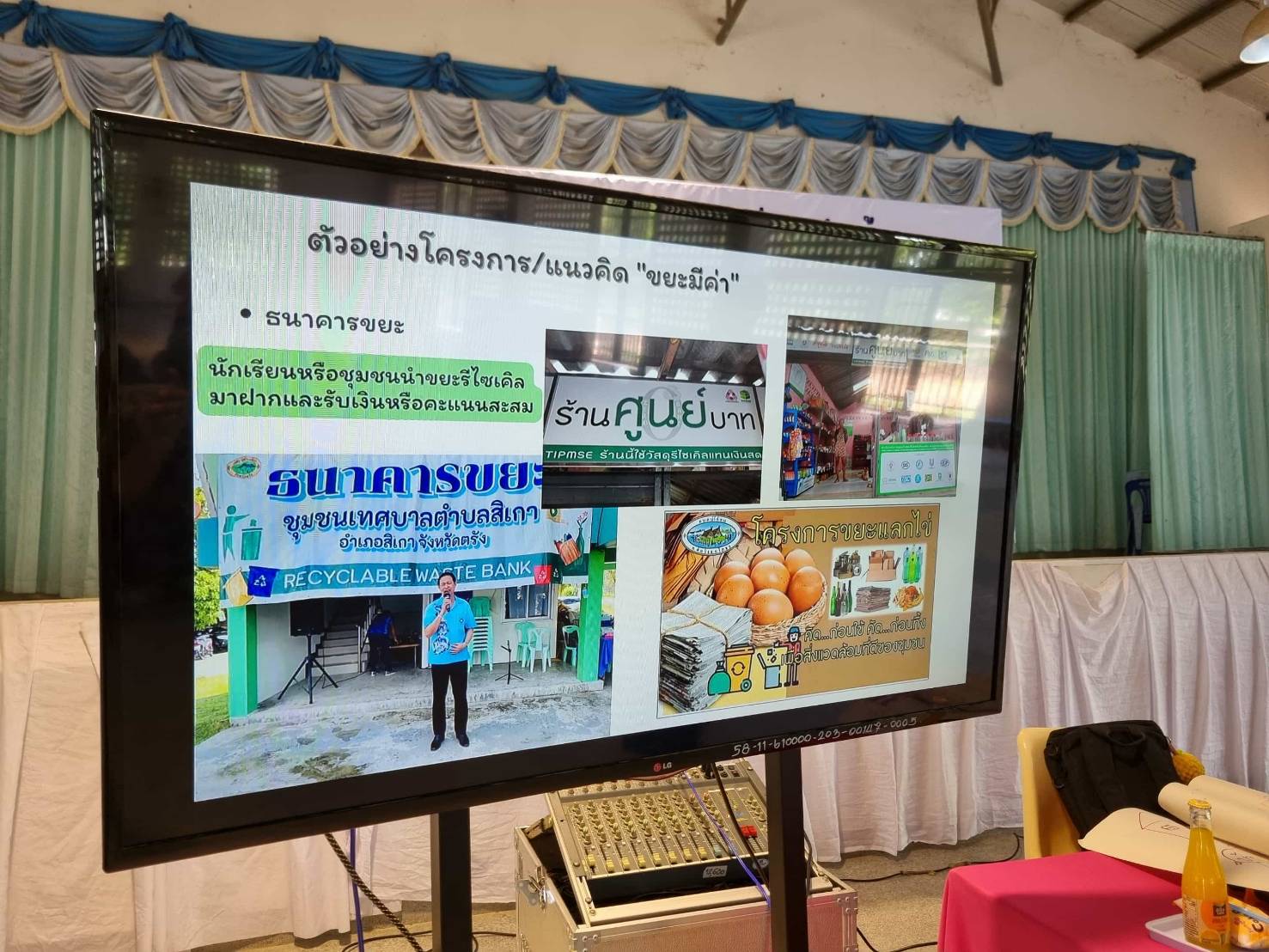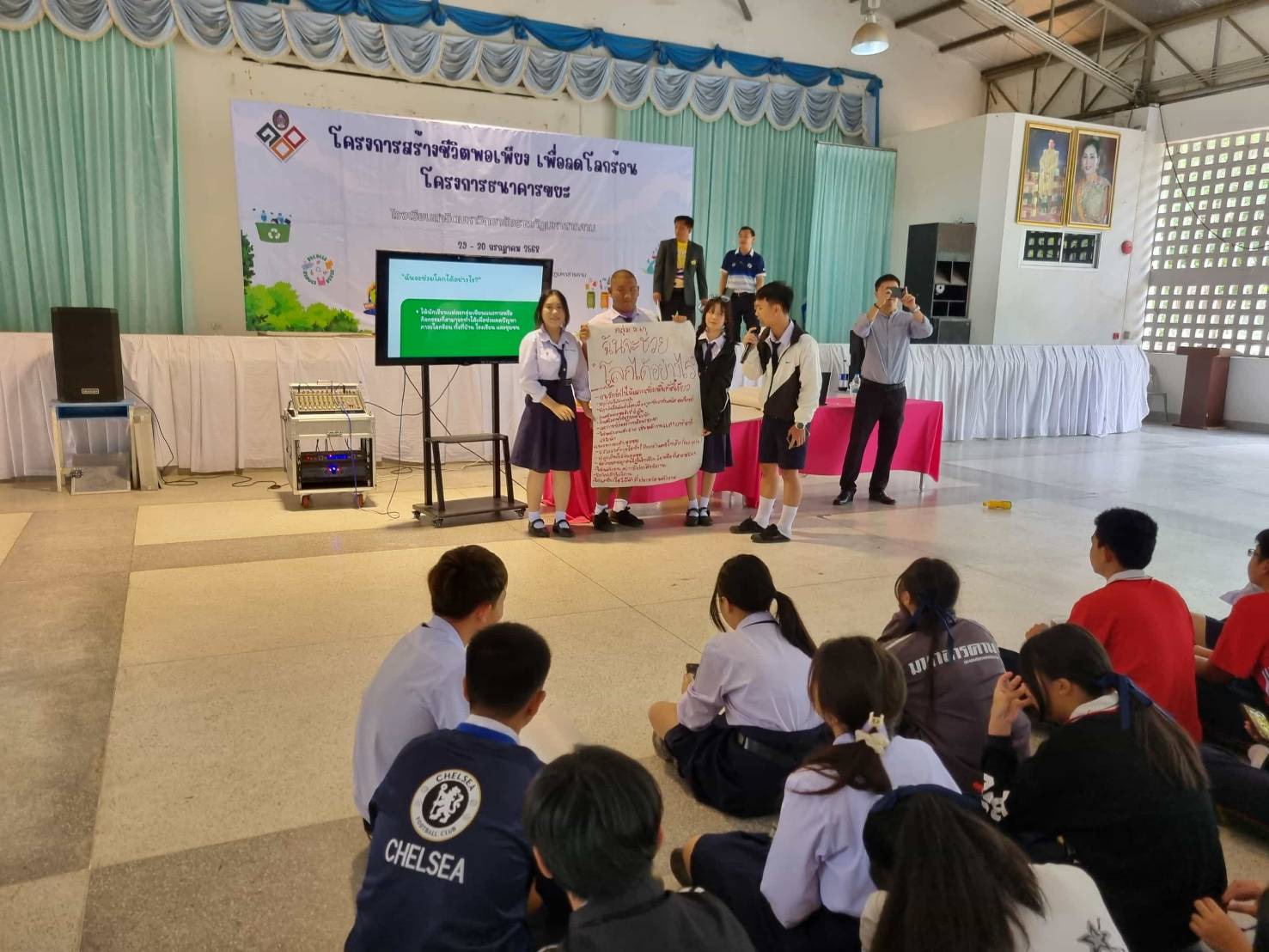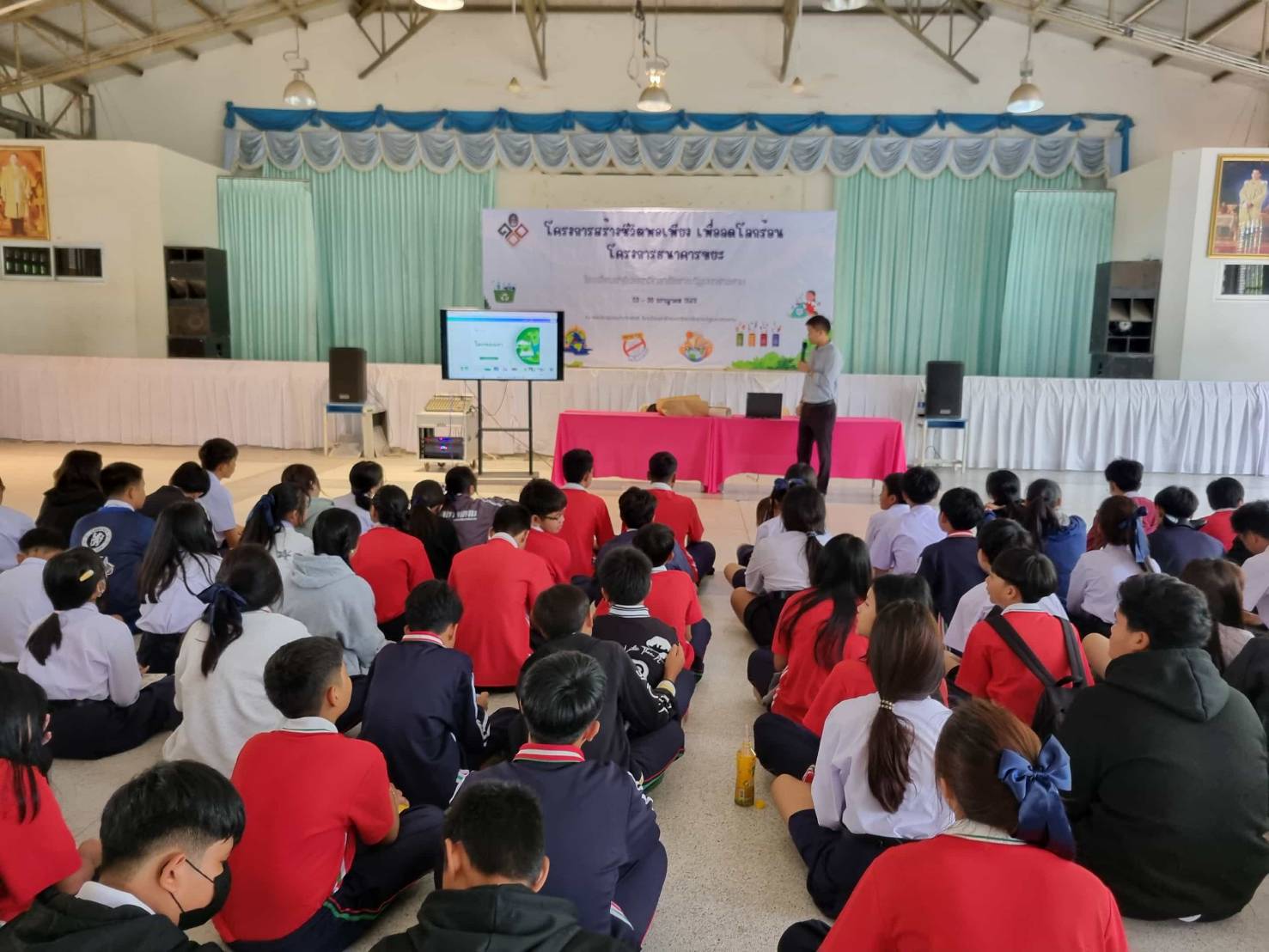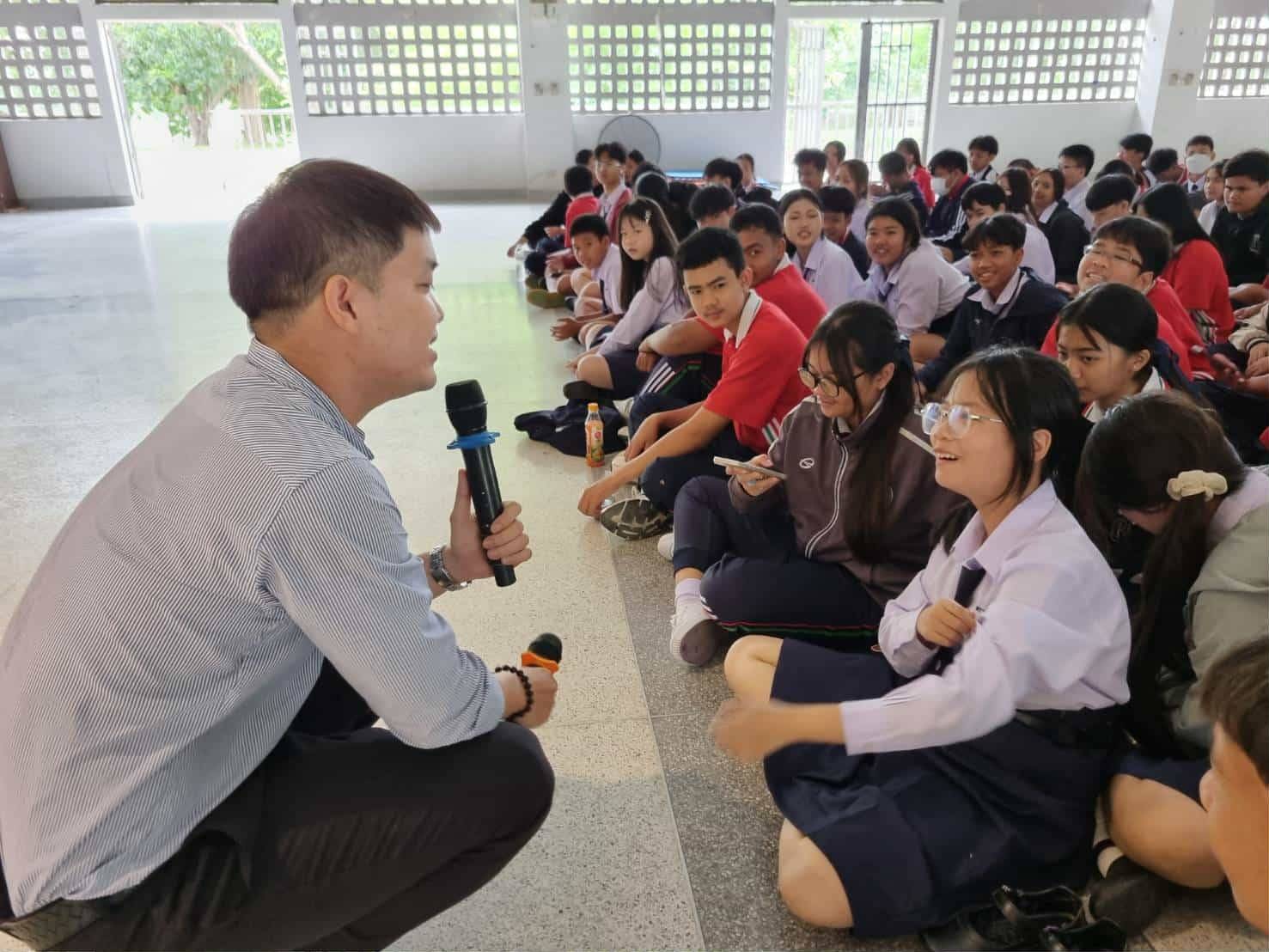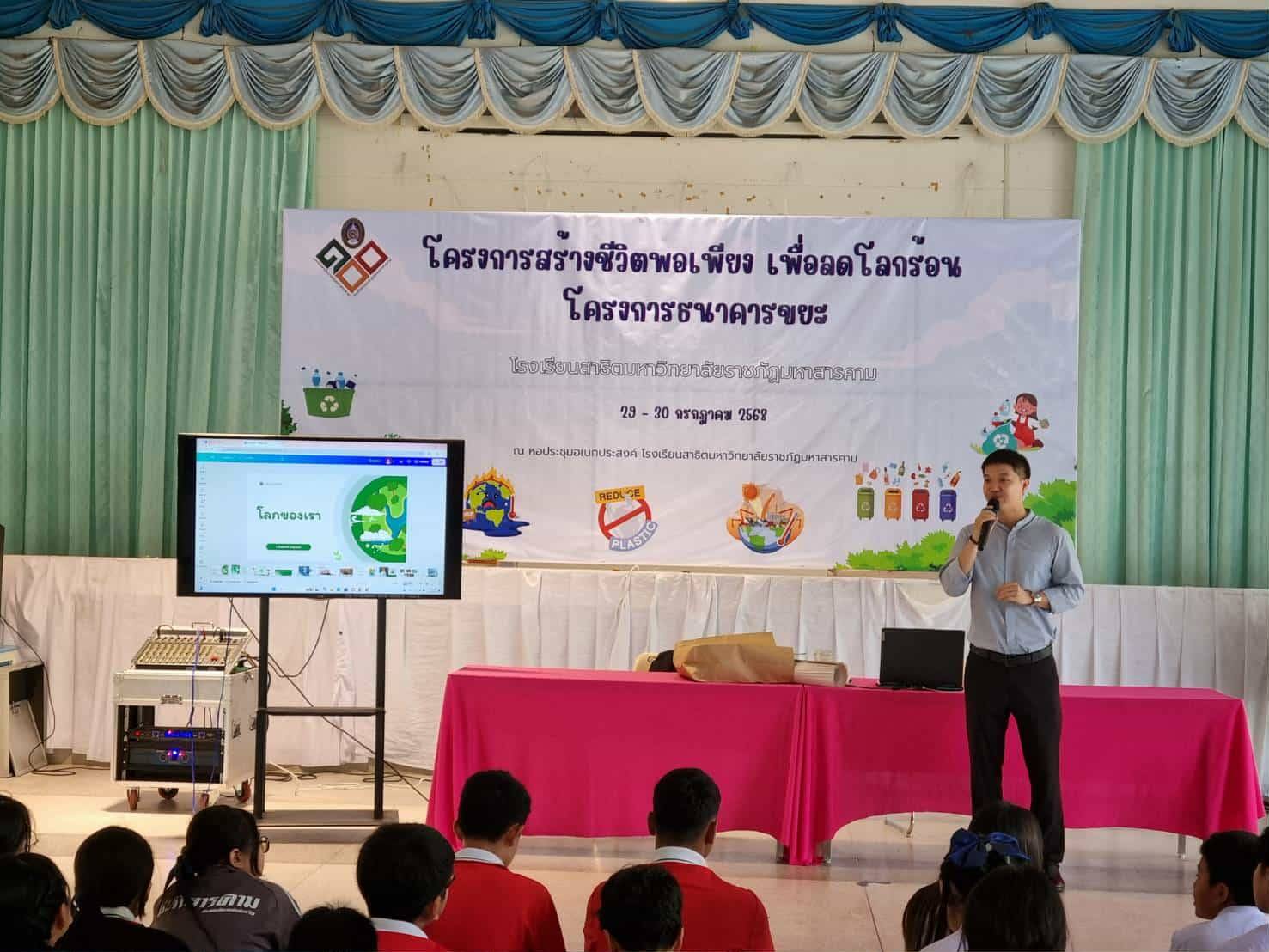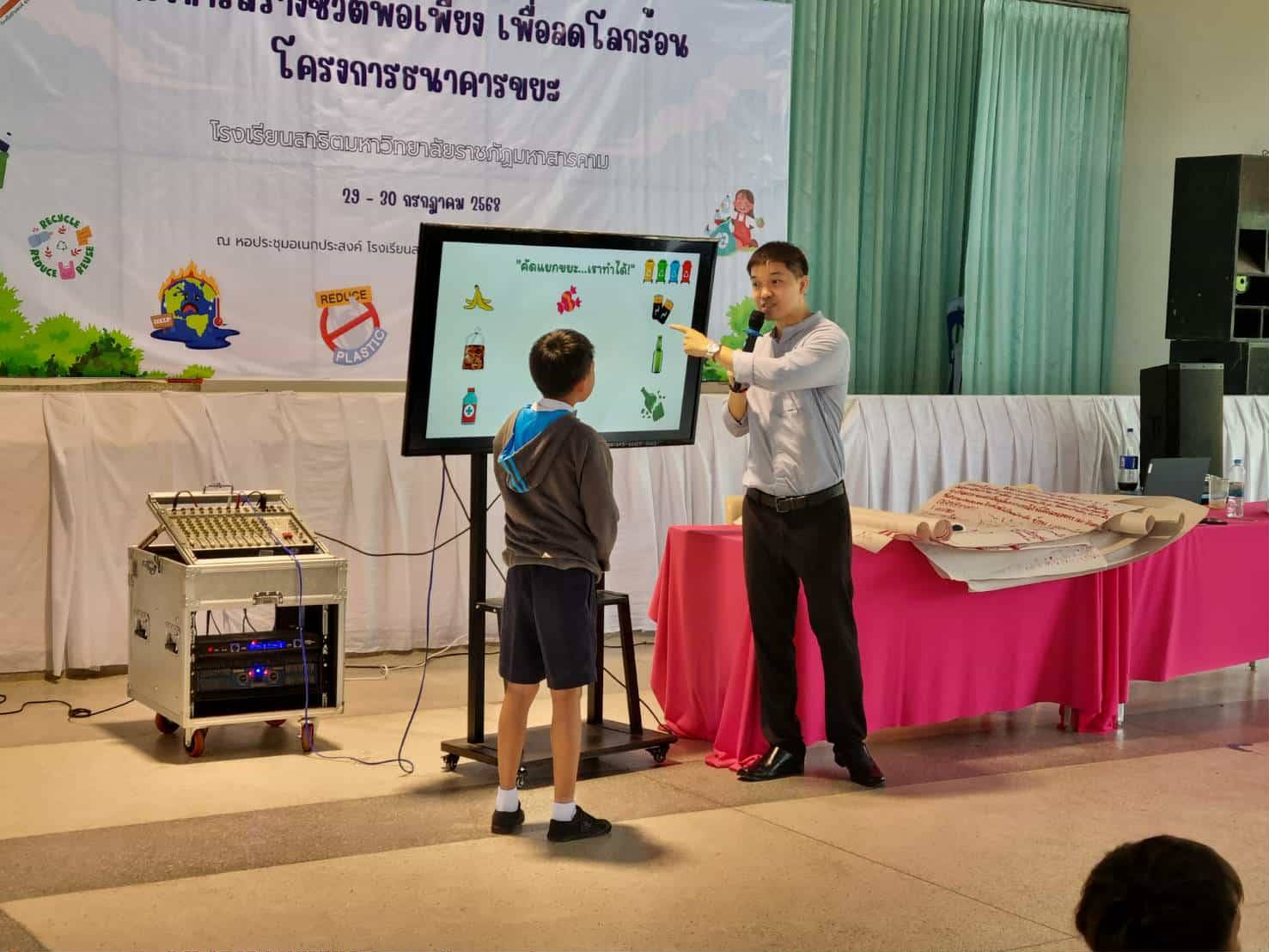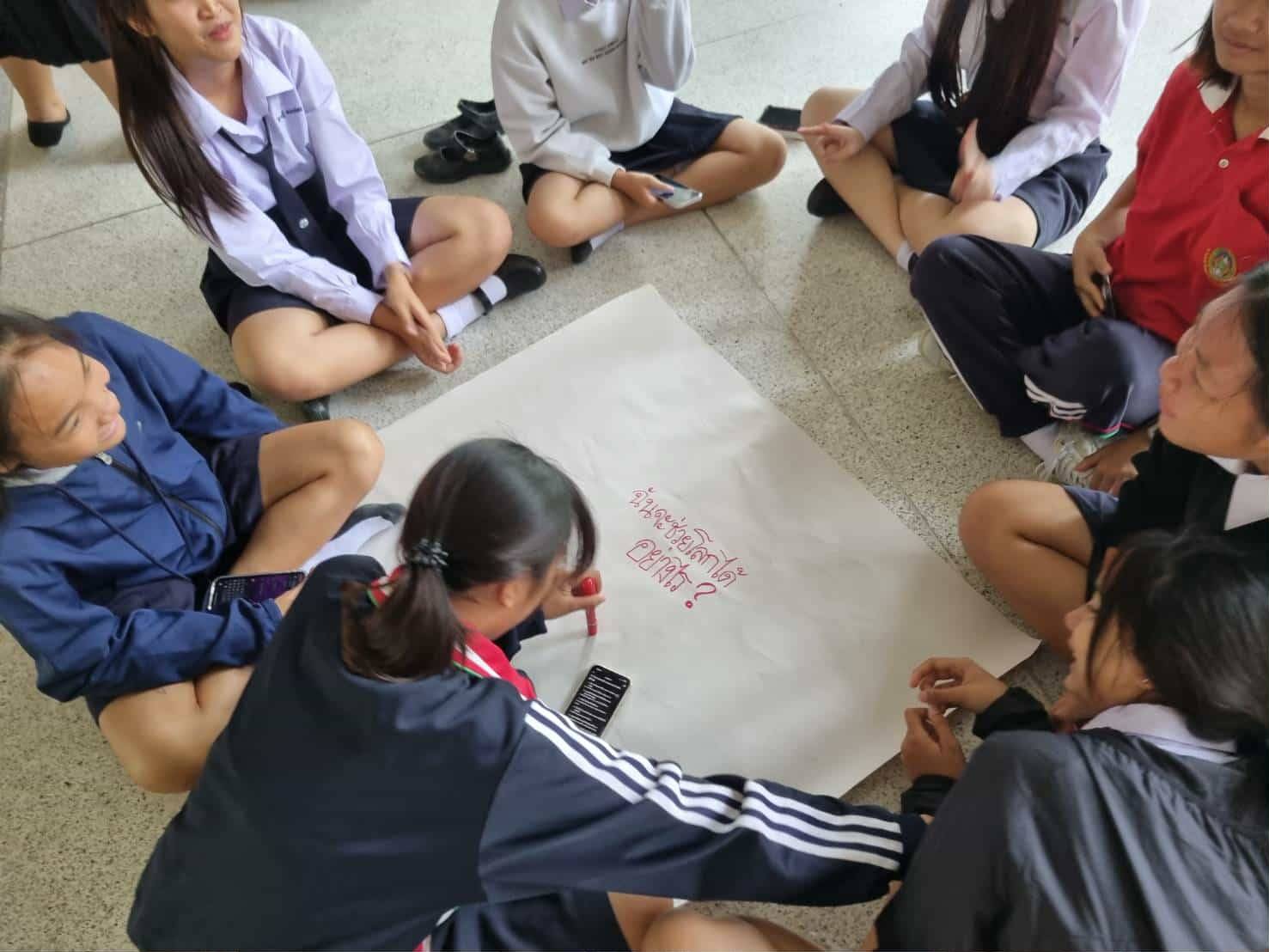
Waste Bank
ผู้รับผิดชอบ ให้ข้อมูล : นางสาวสุกัญญา นนทมาตย์
SDG ที่เกี่ยวข้อง
เป้าหมายย่อยความสอดคล้องกับยุทธศาสตร์มหาวิทยาลัย : พันธกิจสัมพันธ์เพื่อการพัฒนาท้องถิ่นอย่างสร้างสรรค
แหล่งงบประมาณ : งบประมาณแผ่นดิน
กลุ่มเป้าหมาย : นักศึกษา
Project Implementation Area : โรงเรียนสาธิตมหาวิทยาลัยราชภัฏมหาสารคาม ตำบล Talat อำเภอ Mueang Maha Sarakham จังหวัด Maha Sarakham 44000
Project Duration: July 30, 2025 – July 30, 2025
Objectives :
1. To promote environmental awareness among students regarding waste sorting.
2. To develop the school into a clean and pleasant learning environment.
3. To encourage students to practice saving and create added value through waste recycling and reuse.
Activities :
A workshop on “Understanding Waste: Sorting for Value and Turning Waste into Wealth.”
Number of project participants: 628 people
Project Budget: 40,000 Baht
Results :
Participants will gain knowledge and understanding of greenhouse gas reduction
Results society :
1. The activities help reduce greenhouse gas emissions—one of the main causes of global warming—by promoting resource and energy efficiency. This leads to cost savings for the school and contributes to:
- A Low-Carbon Economy: Transitioning toward an economic model with low greenhouse gas emissions through investment in clean technologies, renewable energy, and environmentally friendly production systems.
- A Circular Economy: Minimizing the use of new resources by emphasizing reuse, repair, and recycling to reduce waste and emissions from production processes.
2. Promotion of a low-carbon society through behavioral and lifestyle changes such as using fabric bags, conserving energy, reducing private car use, increasing urban green spaces, and supporting reforestation projects to absorb carbon dioxide and enhance the green environment.
Participation :
Strengthening collaboration between educational institutions and other sectors—including government agencies, private organizations, and civil society—to foster systematic solutions to global warming.
Project continuity :
Regular waste collection rounds (e.g., once per month) will be organized to maintain consistency, together with ongoing awareness campaigns such as the “Environmental Week” activities.
Problems obstacles :
1. Inconsistent waste collection activities have led to a decline in participant engagement.
2. Some waste items are contaminated, making them unsuitable for recycling.
Improvement :
1. Establish a permanent Waste Bank Committee within the Demonstration School of Rajabhat Maha Sarakham University to oversee and sustain the project.
2. Set a fixed schedule for waste selling and announce a clear collection calendar.
3. Organize incentive-based activities, such as a “Waste Points for Eco-Friendly Products” reward program.
Suggestions :
The university should establish a network “Community Waste Bank”, with Rajabhat Maha Sarakham University and its Demonstration School serving as the central hub
